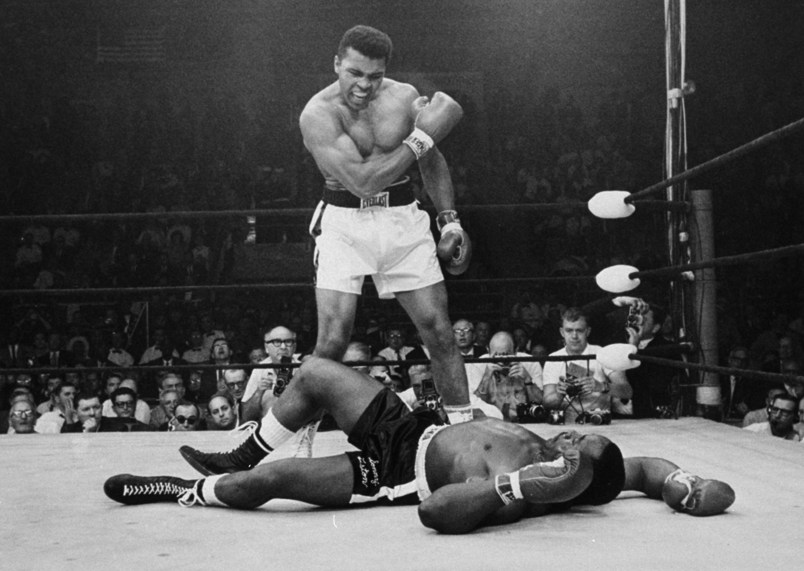Boxing has fallen so far in public esteem, so far off the cultural map of the American landscape (for the most part rightly so) that it may be difficult for anyone under 40, certainly under 30, to fully grasp the scope of Ali’s greatness or importance on the American scene. Sport but so much more than sport, one of the iconic, transformational figures of the second half of the 20th century. A beautiful black man, a Muslim, a titanic athlete, the embodiment of a certain vision of America – and with that smile. And despite the near universal esteem he enjoyed later in life, a genuine rebel who gave up his peak years as an athlete in a fight over the Vietnam War and racism in America. Beautiful, punishing, genius.
The titanic confrontations with Frazier, Foreman and others were etched into my childhood, written into my relationship with my father. Taking the banished TV out of the closet to watch the big fight. Frazier, who became, ironically, the black champion of a certain part of white America in those fights of the early 70s against an Ali who refused to keep his head down, bowed. I was only really old enough to appreciate at the time the majestic, almost operatic fights with Leon Spinks in the late 70s. Ali already well past his physical prime, fighting, losing to Spinks and then summoning a mix of power, wells of character, brilliance and canniness that allowed him to reclaim the crown for the final time. For every cliched cinematic boxing epic you’ve ever seen, with spirit, drive, determination and character besting pure and unbridled power, this was it, the real version. It actually happened. Truly The Greatest, one of those 360 degree heroes, the likes of whom will not walk among us again.






